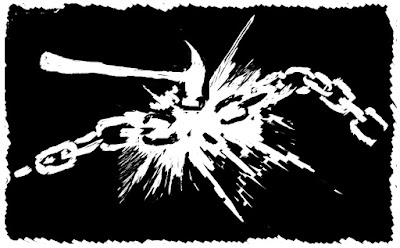The word "democracy" has particular appeal to people. After all, it means the rule by the people. But it also has a dull meaning: the mere ritual of elections, in what could still be an unrepresentative and despicable regime with no legitimacy.
Leaders of Western "democracies" often have embarrassingly low approval ratings and perpetual dissatisfaction exists in society, and they rely on looking tough on alleged threats, to gain a meagre rise in popularity, rather than actually doing anything for their people. Those leaders, such as Justin Trudeau, are condescending to many of the people, which is hardly what you would expect in a system of rule by the people, the very intended meaning of democracy.
Something being "democratic" doesn't necessarily mean the introduction of the system we call "democracy" - the practice of elections, together with the money-drenched marketing campaigns and deceptions that influence the plutocratic result.
Popular rule by other means
Countries may deem themselves democratic based on other aspects of how their state works, such that they manage to embody the will of a sovereign people. This is why countries like the People's Republic of China (PRC) and the Democratic People's Republic of Korea (DPRK) refer to themselves as democratic although they do not hold televised debates or nationwide elections. The Joint Statement of the Russian Federation and the People’s Republic of China on the International Relations Entering a New Era and the Global Sustainable Development pledged Russian and Chinese support for local, authentic expressions of democracy around the world rather than the foreign-imposed and inauthentic systems that are called "democracies" by the dull.
There is something to be said for examining the democraticness, or lack thereof, in a regime's behaviour, rather than agreeing with the simplistic classification of different constitutions as a democracy or dictatorship. In the case of many Western governments and leading institutions, we indeed come up short when it comes to democraticness, despite the continuous use of the word "democracy", often by those who aren't elected.
The thwarting of the people
Across the US, the UK and the EU, for example, populism evokes horror among leaders, despite it really meaning that one is deferring to popular concerns, which is an essential aspect of being actually democratic. Populism is presented as a threat to "democracy", which only raises the question of what "democracy" they refer to, if it is incompatible with being popular.
Leaders of self-proclaimed liberal democracies such as the United States cringe at the idea of their populations actually getting anything they want, and are delighted at the idea of thwarting the wishes of the majority. The entire practice of elections, for them, is a game according to which they trick the people and manage to force upon them whatever they didn't want.
Disdain for the people
Not a word is ever uttered by the leaders of these countries about the wisdom or merits of the people, although leaders continuously use the word "democracy" with forked tongues. In fact, they deplore vast numbers of the people and make it their job to lecture and convert the people to their cause rather than represent them.
Does a sincere advocate of democracy - the system of rule by the people - have nothing nice to say about the wisdom of people, conceal facts from them, view them all as fools easily duped by intelligence services, and only offer to rule and protect them rather than obey them?
A country that actually valued the will of the people might actively labour to make all the people wiser, and then defer to the wishes of those people, treating them like an oracle. What happens instead is that the people are pressured to agree with the authorities, rather than vice versa. So, on top of the mountain of garbage that is a so-called "democracy", rests some small crumb representing how much that regime actually cares about what the people think and how much it actually shares their pain.


